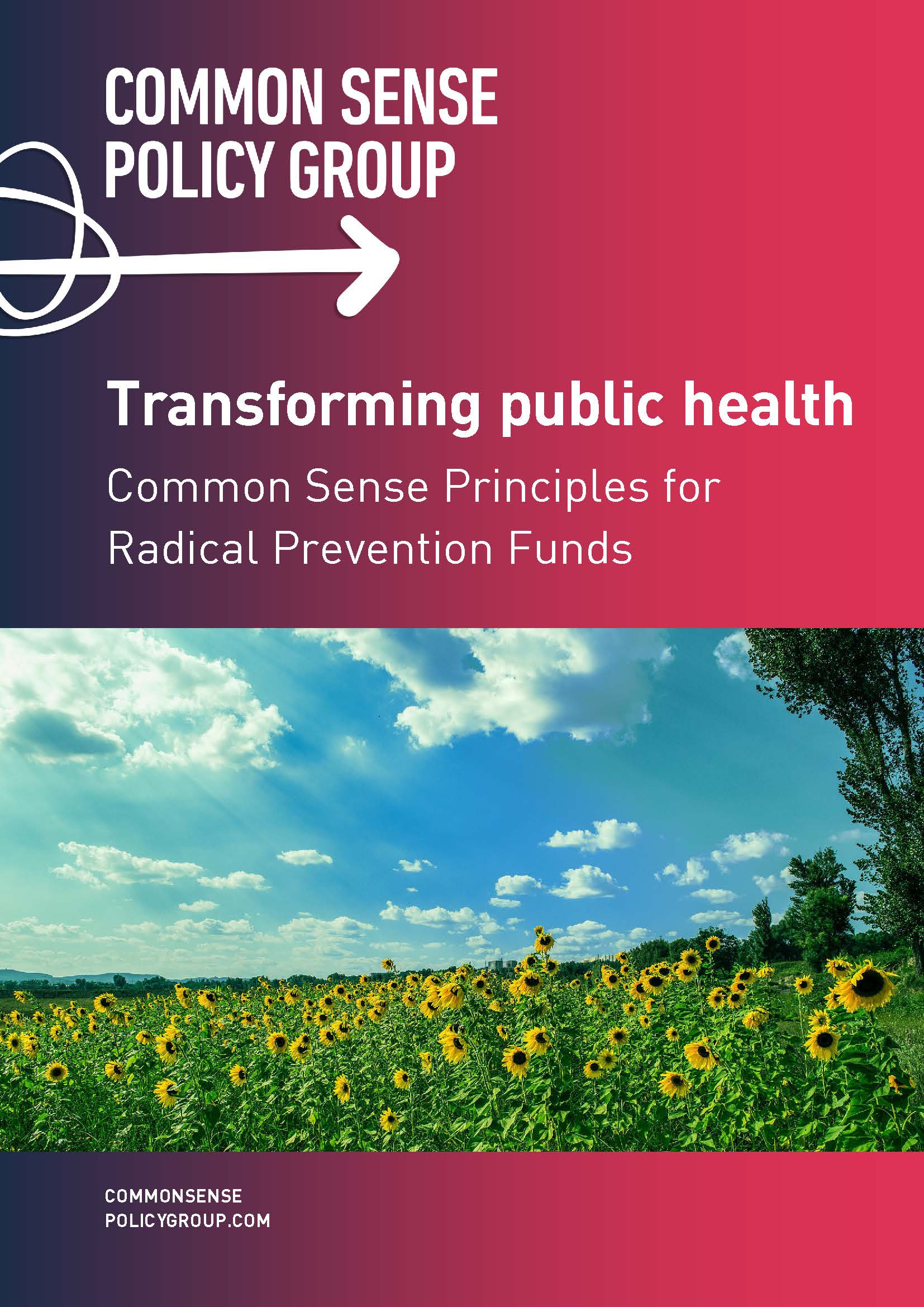
Transforming public health: Common Sense Principles for Radical Prevention Funds

This report examines the social determinants of health and presents a series of recommendations to Combined Authorities seeking to introduce innovative RPFs:
Recommendation 1: Radical Prevention Funds (RPFs) should be established by Combined Authorities such as NECA in order to address health inequalities in the worst-affected regions. Combined Authorities’ broad geographic, policy and public service innovation remits put them in a strong position to administer RPFs.
Recommendation 2: RPFs should be designed in alignment with the 10 Principles outlined in the report to ensure that they most effectively address health inequalities.
Recommendation 3: RPFs should address social determinants of health inequalities directly if possible, and on a stepping stone basis down from that if not.
Recommendation 4: RPFs should prioritise innovative approaches that are scalable, unless they address the cause directly for the whole population affected.
Recommendation 5: RPFs should transfer decision-making power to citizens to provide democratic backing to approaches that may otherwise be deemed ‘too radical’ for policymakers to enact. This helps build community wealth and assets while preventing clientelism, reducing bias in the process and providing greater opportunity for equity of access for both applicants and those involved in assessment of proposals.
Recommendation 6: RPFs should be developed further through consultation with stakeholders, particularly local people, to decide on the final structure in line with the 10 Principles.
10 Common Sense Principles for Radical Prevention Funds (RPFs)
Principle 1: Equality Principle
Principle 2: Freedom from domination
Principle 3: Tackle the social determinants of health directly or on a stepping stone basis downstream where it is not
Principle 4: Build up community wealth
Principle 5: Level up places
Principle 6: Modern problems require ambitious, experimental and innovative solutions
Principle 7: Interventions should be scalable unless they address the cause directly for the whole population affected
Principle 8: Work across policy areas and between institutions where it is more effective
Principle 9: Transfer decision-making power to citizens where possible
Principle 10: Value expertise, but hold it accountable